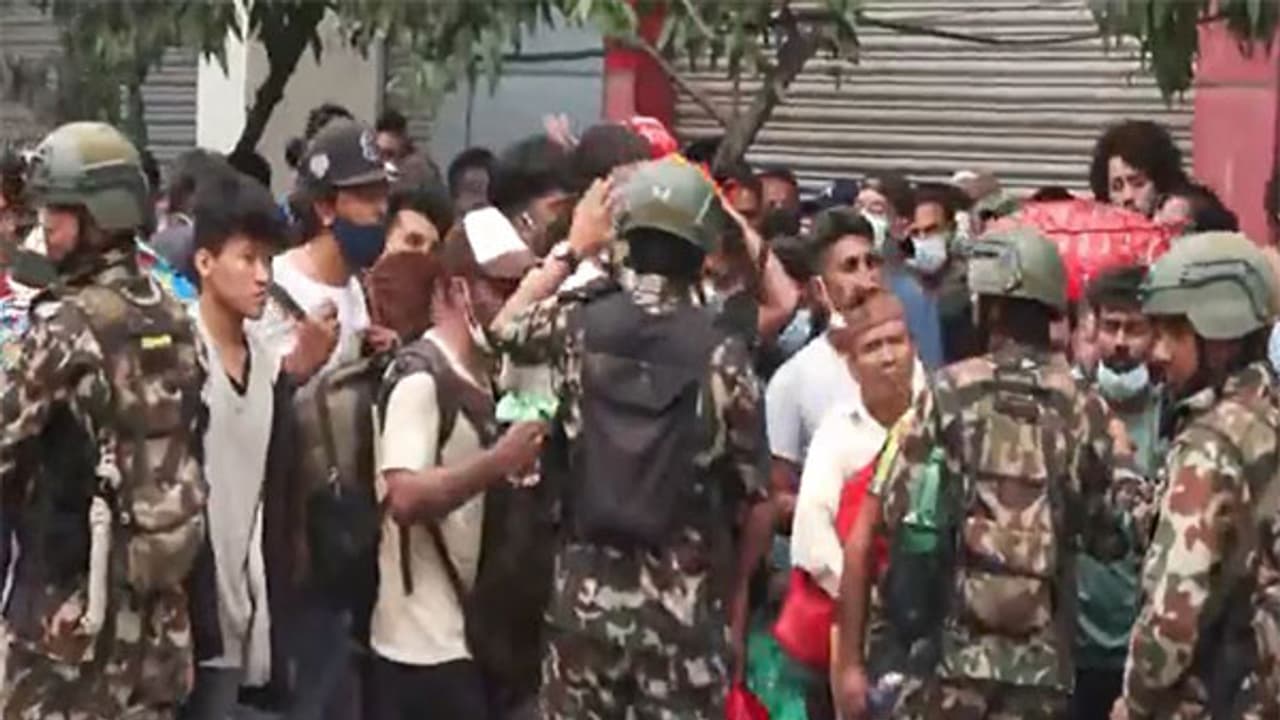A large group of inmates from Kathmandu’s Dillibazar Jail stepped out of the prison premises on Wednesday, demanding their release amid the ongoing unrest triggered by nationwide anti-corruption protests.
A large group of inmates from Kathmandu’s Dillibazar Jail stepped out of the prison premises on Wednesday, demanding their release amid the ongoing unrest triggered by nationwide anti-corruption protests. The Nepalese Army has been deployed in and around the jail to prevent further escalation, as law enforcement struggles to maintain control in the capital. The situation unfolded as police personnel, who had been overseeing security at several detention facilities, reportedly withdrew from their posts except the Police Headquarters, following two days of violent demonstrations mainly led by Gen Z protesters.
He also emphasises that protests must be conducted peacefully, respecting life and property.
Meanwhile, twenty-seven individuals involved in looting, arson, and other violent acts during the ongoing Gen Z-led protests across Nepal, including in the capital, Kathmandu, were arrested by the Nepalese Army, The Himalayan Times reported on Wednesday.
According to The Himalayan Times, the arrests were made between 10 pm on Tuesday and 10 am on Wednesday, as a nationwide deployment of forces was made to manage the ongoing protests.
Earlier, the Nepalese Army announced the imposition of prohibitory orders and continuation of the nationwide curfew in response to the escalating unrest driven by the Gen Z-led protest in various parts of the country.
In a statement released on Wednesday by the Directorate of Public Relations and Information, the Army stated that the prohibitory orders will remain in effect until 5:00 pm today.
Following that, a nationwide curfew will come into force from 6:00 am on Thursday, Bhadra 26 (September 11).
The Army noted that any further decisions will be made based on the developing security situation.
On Tuesday, Prime Minister KP Sharma Oli also resigned from his post amid the growing protests, along with other ministers. The protests began on September 8 in Kathmandu and other major cities, including Pokhara, Butwal, and Birgunj, after the government imposed a ban on major social media platforms, citing tax revenue and cybersecurity concerns.
Gen Z Protesters’ Demands as Nepal Burns
Protesters are demanding an end to institutionalised corruption and favouritism in governance. They want the government to be more accountable and transparent in its decision-making processes. The protesters are also demanding the revocation of the ban on social media platforms, which they see as an attempt to suppress free speech.
At least 19 people were killed and 500 were injured in clashes with security forces. A curfew was imposed in several cities, including Kathmandu, to control the situation.
(Except for the headline, this story has not been edited by Asianet Newsable English staff and is published from a syndicated feed)
